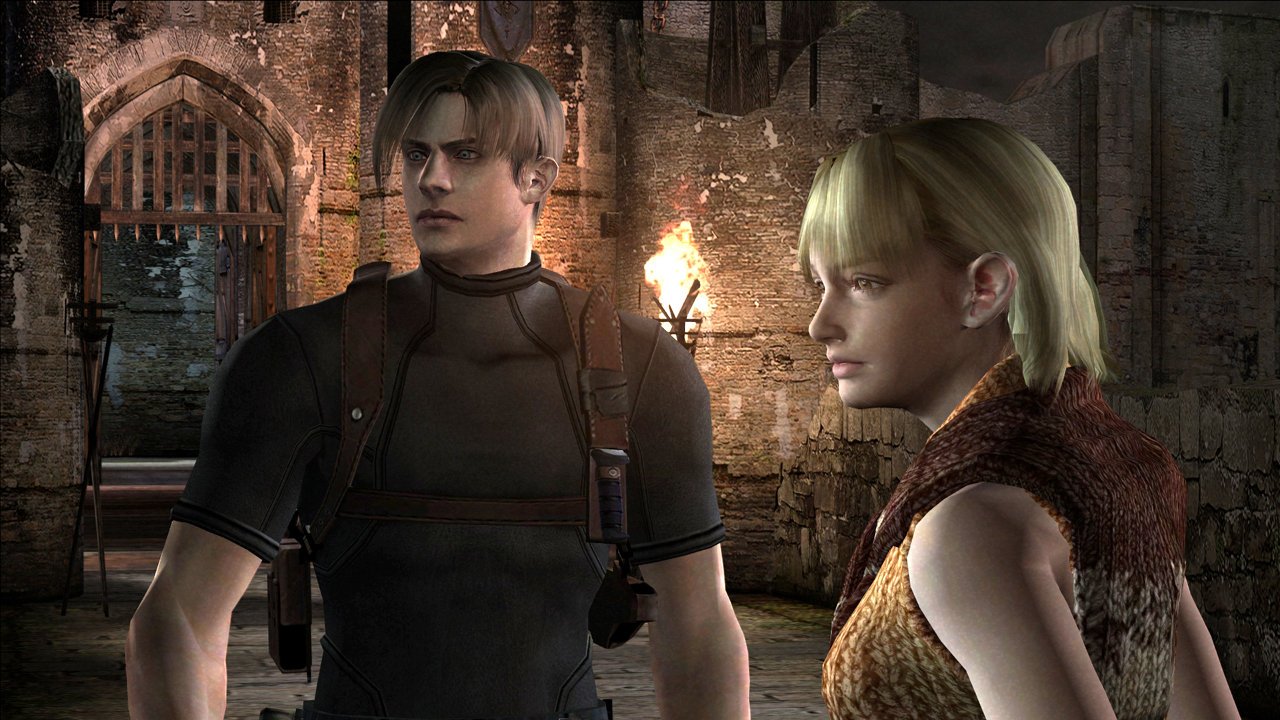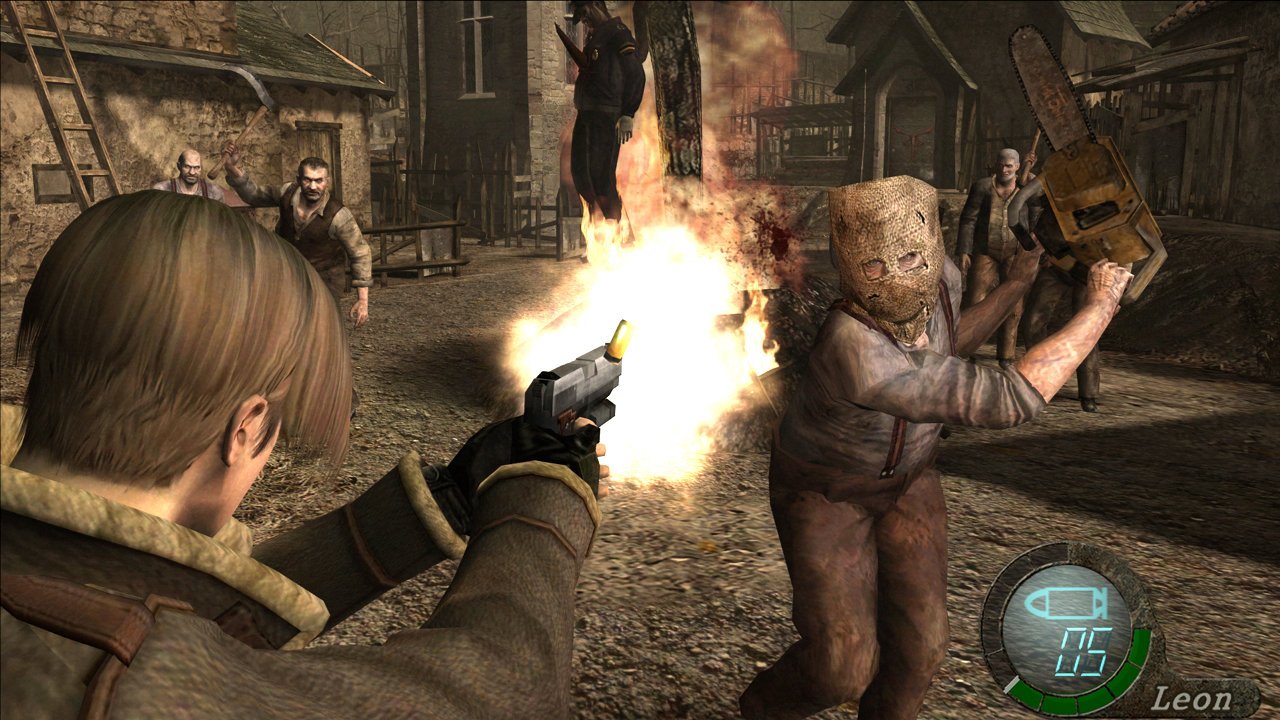I've never played Resident Evil, where's the best place to start?
Video games have their share of long and storied franchises. But around the seventh or eighth sequel, it can be difficult for newcomers to know where to start. These guides will point you in the right direction, and maybe you'll find a new favorite.
Capcom's seminal survival horror series has reinvented itself more times than the Umbrella Corporation. One year it's a pure, slow-paced terror, and the next it's a non-stop, explosive rollercoaster. If you didn't get in on the ground floor, it can be difficult to know how to make heads or tails of this erratic franchise.
What exactly defines a Resident Evil game in this day and age? If you're ready to find the answer, look no further than Resident Evil 4. Originally released on the GameCube in 2005, this peerless third-person shooter has rightfully earned the title best Resident Evil game of all time. Here's why:
It's the intersection of classic and modern Resident Evil. Resident Evil 4 represents a major turning point for the series. It discarded the clunky controls and fixed camera angles of its predecessor, creating a fast and fluid shooter unlike any the series had seen before. At the same time, it didn't lose sight of the haunting, oppressive atmosphere Resident Evil is known for. That balance between of horror and action is something Capcom has been trying to recapture for years. Finishing Resident Evil 4 will prepare you for any challenge the series can throw at you, from the cryptic puzzles of its past to the large-scale battles of the present.
Resident Evil 4 forces you to stop and think. Leon S. Kennedy may be a capable protagonist, but he's in no way the one-man zombie-killing machine found in Resident Evil 6. Survival means capitalizing on every opportunity, whether it's a spare box of shotgun ammo, a ladder you can tip over, or even detonating the dynamite lodged in an enemy's hand. Resident Evil 4's encounters are tough, demanding that you continually reevaluate the strategic interplay between your weapons, the enemies you're fighting, and your immediate surroundings. For instance, the pistol may be weak, but it's great at setting up ammo-saving melee strikes against single targets. Against larger groups, luring them into a narrow space and then unloading with the shotgun is an excellent means of crowd control.

Its story is one of the least convoluted in the entire franchise. The original Resident Evil trilogy had you explore the eerie Spencer mansion, fight through Raccoon City twice, and finally capped the whole thing off with a nuclear explosion. Obviously, after all that, it was time for a change. Resident Evil 4 is a largely self-contained story about Leon's search for the President's missing daughter, and his subsequent investigation into a malicious parasite called 'Las Plagas'. There are some callbacks to the Umbrella corporation and scenes with Ada Wong that might fly over your head, but not enough the derail the plot.
And then there's the merchant. "Whatta ya buyin? Whatta ya sellin?" Resident Evil 4's delightfully creepy salesman doesn't do much besides buy things at a high price, but his bizarre mannerisms earned him a special place in our hearts. And he's just the beginning. RE4 is filled with little touches and flourishes like this that complement the excellent gunplay. Consider inventory management. It's an odd thing to highlight, I know, but once you've used it, you'll understand the appeal. Your item case is divided into a grid, and you must shuffle, rotate, and combine items together to make them all fit into the limited space. When it works, it's like a perfect game of Tetris.
Weekly digests, tales from the communities you love, and more
Resident Evil 4 helped kickstart the third-person shooter genre. Today's cover-based, third-person shooters owe a debt of gratitude to Resident Evil 4. The ease and fluidity of its over-the-shoulder perspective set a new standard within this fledgling genre, and directly influenced Gears of War, Dead Space, and so many others. But this isn't some dusty old relic, either: RE4's time-tested designs are just as enjoyable now as the day they were released. It's a classic, one of gaming's timeless greats.

RE4 demands you continually reevaluate the strategic interplay between your weapons, the enemies you're fighting, and your surroundings.
Once you finish Resident Evil 4 or Resident Evil 4 HD, what should you play next? There's a pretty clear divide between what came before RE4 and what came after. Think about what it is you enjoyed most about your time with this game, and let that guide your decision as to what to play next.
Resident Evil HD This remake of Resident Evil on GameCube - itself a remake of the very first Resident Evil - does an excellent job of preserving the classic survival horror gameplay of the original with updated visuals and surround sound audio. If you enjoyed the spooky environments, puzzle solving, and survival aspects of Resident Evil 4, you can't go wrong by returning to a prettier version of the series' roots.
Resident Evil 5 This game is the polar opposite of Resident Evil HD. By doubling down on explosive gunplay (and Chris Redfield's biceps), Resident Evil 5 set the series on a new trajectory from campy, B-movie horror to cheesy action shlock. Choose this game if you enjoy the tense gunplay and creative bosses of RE4, and be sure to bring a friend along if you can - the game gets even better in co-op, both online and off.



